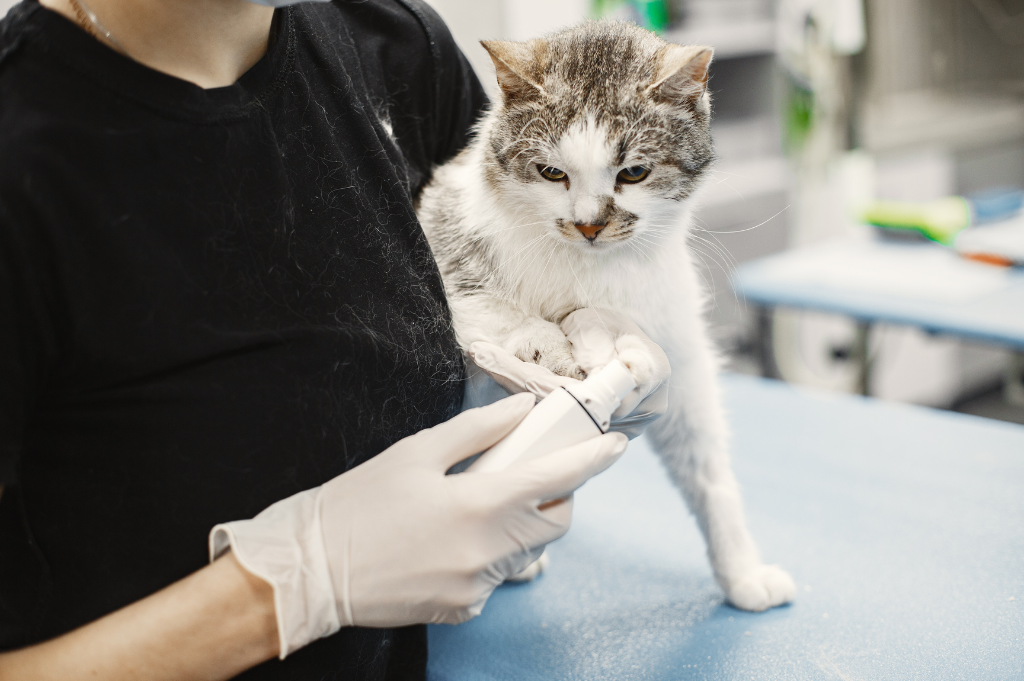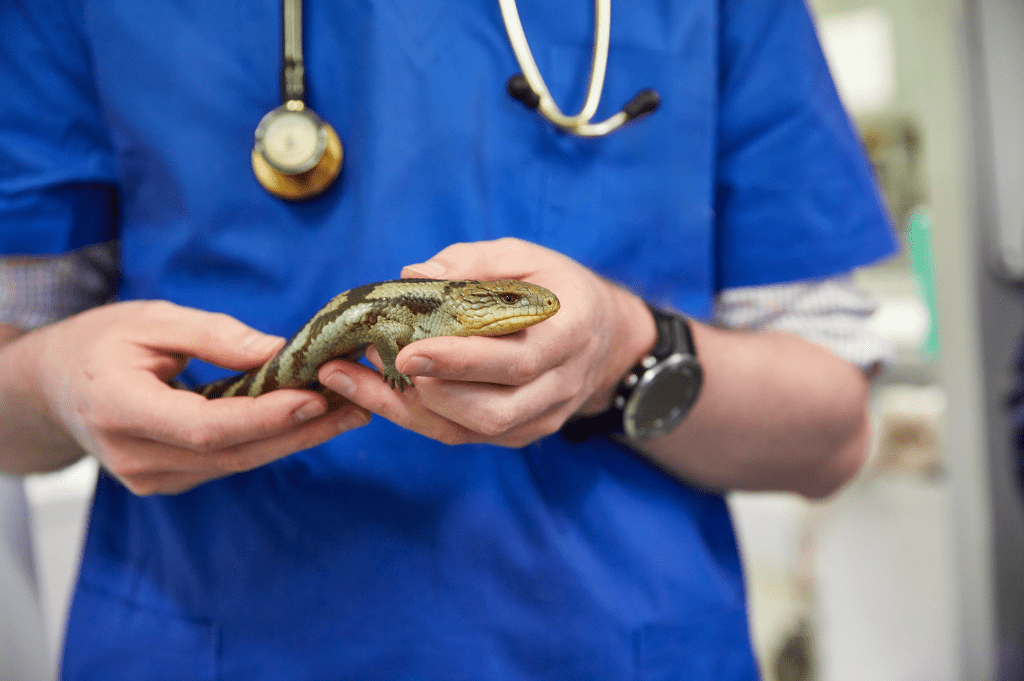
What Is a Veterinarian?
Let’s explore the role of a veterinarian, including what they do, career advantages, necessary skills and educational requirements.
Last updated: February 10, 2025.
Do you love spending time with animals and caring for them? Do you hope to develop a well-paid and respected career? If so, working in veterinary medicine may be right for you!
Veterinarians are medical professionals who often hold a Doctor of Veterinary Medicine (DVM) degree and provide a variety of healthcare services for animals and their families. There are a variety of specialization opportunities available for aspiring practitioners, including a focus on household pets, working animals, conservation initiatives and much more.
For those interested, this blog will provide a broad view of veterinary medicine and what you can expect from the profession. It also delves into the educational requirements of becoming a vet and the advantages of a St. Matthew’s University education.
What Is a Veterinarian?
First things first, let’s clarify what exactly a veterinarian is, for those who may be wondering. A veterinarian, or vet, is essentially a doctor for animals. They provide most all the services that people require from their own doctors, including diagnostics, treatment and long-term care.
Veterinarians often hold advanced degrees, such as a Doctor of Veterinary Medicine (DVM) degree, which show that they have the knowledge, skills and experience necessary to care for a variety of animals, from household pets, to working animals, to wildlife.
What Does a Veterinarian Do?
Veterinarians diagnose health issues, provide healthcare procedures and medications, and ensure that animals receive the support they need for ongoing well-being.
While veterinary duties can vary from one role to another, most can be classified under the following tasks and responsibilities:
- Diagnosing the specific medical condition of animals.
- Medicating sick or diseased animals.
- Performing minor to complex surgeries.
- Advising animal owners about existing conditions.
- Educating animal owners about their feeding, behavior and breeding needs.
- Providing preventive care such as vaccinations against certain diseases.
What Are the Advantages of a Veterinary Career?
Here are some common benefits of being a veterinarian:
- Diverse experiences: Unlike human doctors, veterinarians need not choose a specialty. A veterinarian gets to be a family doctor, cardiologist, surgeon, neurologist and more for their patients. This kind of diversity in a vet’s work keeps their profession interesting.
- Considerable job security: As animal care standards continue to improve, the need for qualified vets will also increase. Thus, there is considerable job security in this line of work.
- Ability to make a real impact: A veterinary career can be very rewarding as you can positively impact the lives of animals and their owners, who often consider their animals to be part of the family. The ability to make a real difference as a vet can be quite exhilarating.
- Strong likelihood of good colleagues: It takes a lot of dedication and commitment to become a qualified vet. Therefore, as a vet, you can expect to be surrounded by hard-working colleagues who can pull their own weight.



What Education Is Required to Be a Veterinarian?
Veterinarian education requirements often include completing an undergraduate degree in a relevant science-based subject, followed by a Doctor of Veterinary Medicine (DVM) degree.
However, this is not the only educational pathway. For career changers with an undergraduate-level degree and some foundational science coursework, pre-med programs like our Master’s Program can help you develop the knowledge you need to succeed in veterinary school.
What Else Do You Need to Pursue a Veterinary Education?
Along with a relevant educational background, be that a science-based undergraduate degree or pre-med program, there are other things you can do to enhance your application to a DVM program and begin building the skills necessary to succeed throughout your veterinary career.
- Pet ownership or fostering: Many aspiring veterinarians develop their love of animals early-on through pet ownership, however even if you did not own a pet growing up, it is a good idea to gain that experience if possible. Options include adopting or fostering a pet as an adult, in order to learn what it’s like to be around animals every day. A career as a veterinarian is demanding, so best to ensure it’s something you’re passionate about and able to manage, before proceeding.
- Volunteering: A great way to get some experience in the field of veterinary medicine is to volunteer at an animal hospital or even an animal shelter. This will help you understand what it’s like to provide animal care in a professional setting.
- Science and Math: Along with developing hands-on skills and experiences, it is also a good idea to start building a strong academic foundation even before you pursue a pre-medical degree or program. In secondary school, or via independent courses at various learning institutions, aspiring veterinarians should take as many math and science courses as possible, so they are ready to succeed throughout their educational and practical careers.
What Does a DVM Degree Provide?
DVM programs are designed to prepare you for a wide range of duties of being a vet, by providing expansive medical education and many different hands-on learning opportunities with a variety of animals . Enrolling in a DVM program can provide you with the following skills needed to be a veterinarian, among many others:
- Diagnostic skills
- Lab research skills
- Analytical skills
- Comprehensive knowledge of animal virology and immunology
- Communication skills
- Critical thinking skills
What Are the Career Prospects for a Future Veterinarian?
DVM degrees provide you the knowledge and skills required for a wide range of veterinary career paths, from government veterinary services to wildlife conservation. Many also use this degree as the foundation to open their own veterinary clinic and practice independently. Here are a few interesting veterinary careers that may catch your interest:
- Animal psychologist
- Clinical veterinarian
- Veterinary surgeons
- Animal nutritionist
- Nature conservation officer
- Zookeeping consultant
This is just a small sample; there are so many veterinary careers to explore!
Conclusion
Choosing the right DVM program can set you up for long-term success in veterinary medicine.
At St. Matthew’s University School of Veterinary Medicine (SMUSVM), our DVM program lasts 3+ years and features hands-on training with both standard small and large animal species, as well as with more rare aquatic species. It also includes Clinical Medicine rotations in the U.S. and Canada.
Through your time with us, both during Basic Science on our Grand Cayman campus and through rotations, we proudly deliver individualized support to help you meet your goals. With SMUSVM, you are never just another face in the crowd; you are part of a close-knit community that works together to foster academic and personal success.
Want to learn more? Check out this video testimonial from a DVM program student:
If you’re interested, please contact us to learn more or jump right in and begin your application today!
FAQs About Veterinarians
Veterinarians who have completed the required education and training are qualified as Doctors of Veterinary Medicine (DVM). As with medical doctors who focus on human health, they can be called “Doctor” and identify themselves as such.
In the United States, the average veterinarian salary was $126,909 USD in February 2025. In Canada, that number was $128,847 CAD in the same period. These numbers come from Indeed.
According to this article, the highest paid veterinary career in 2024 was Equine Veterinarian (specialist in horses). Other top performing veterinarians include, Veterinary Radiologist, Veterinary Research Scientist and Board-Certified Veterinary Surgeon.
As with most jobs, especially in healthcare, becoming a veterinarian is a great job for those who are passionate about the work. It provides strong salaries, career flexibility and the feeling that you’re doing good in the world. However, veterinarians also face many challenges, including rigorous educational requirements and the stress of managing sick and injured animals on a regular basis. Before pursuing a veterinary career, it is important to ask yourself if it’s truly the work for you. For those who can answer yes, it is a wonderfully rewarding career.
Request Information